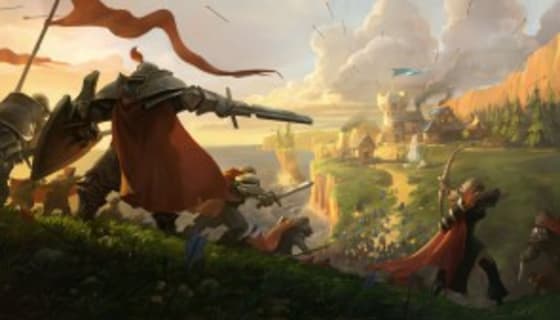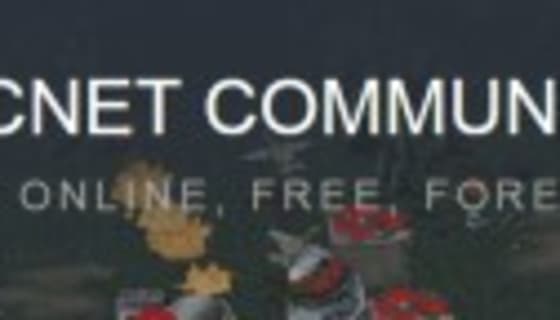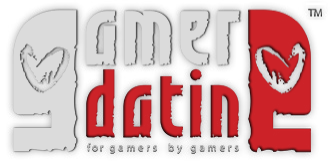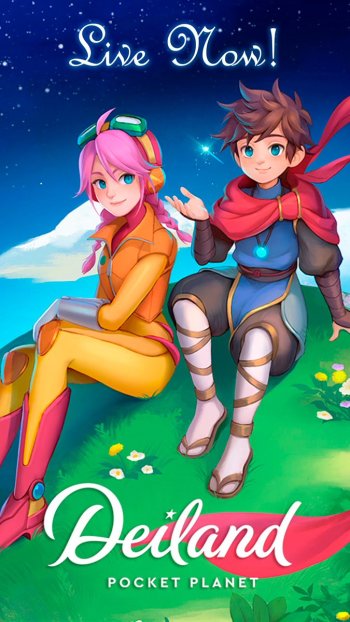A beautiful update to a big adventure in a tiny world.
Earlier in 2021, one of my favourite game studios, Chibig Games, released an updated version of their game ‘Deiland’ for the Nintendo Switch. A relaxed, quest-based farming adventure game that takes you on a journey from your own tiny planet across the galaxy as you try to solve the sinister mystery that endangers your world. You play as Arco, the sole inhabitant of the tiny planet of Deiland as he learns how to take care of his world with the help (or hinderance) of the many interesting characters who find themselves drawn to the planet.
As a huge fan of Chibig’s work, and having played some of the game casually on PC, I was excited to check it out on a new platform and see first-hand what upgrades had been made.
Upon loading the game, the most noticeable update is immediately obvious; the stunning, high quality art assets. The style used is similar to that of Chibig’s newest game, ‘Summer in Mara’, with clean lines and bright colours that inspire a sense of childlike wonder entirely in keeping with the story and ethos of the game. Another key difference is the updated soundtrack, a very important aspect of the game as each area, season, and random event has its own unique track that helps to immerse you further in the story and can be a big help in indicating if you’re in danger!
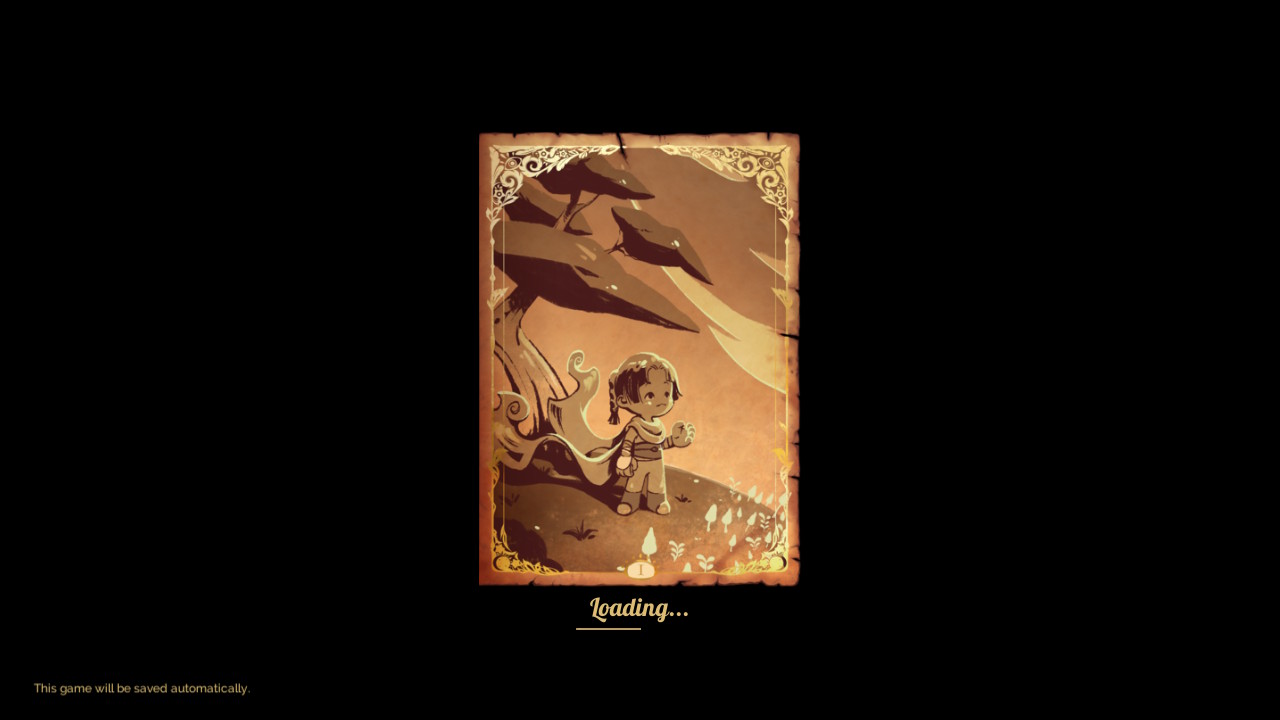
Update graphics like Summer in Mara is a welcome addition.
As in the original version of the game, you must begin by establishing yourself on your planet by crafting tools, gathering resources, and creating your farm. Fans of the Deiland series will be delighted to see that Mûn is there to guide you with a series of quests that you need to fulfil. However, a problem that has transferred over to the updated version of the game is that not all of the controls are explained in the tutorial sequence, which can leave the player floundering until they figure out which button to press to find the menu or item they are looking for. Luckily, there aren’t that many buttons to try on a Switch controller!
Once the tutorial is over, you are left to tend to your farm and enjoy life on your small planet. Crafting, farming, and cooking all use fairly standard mechanics that are easy to use but nevertheless add a sense of achievement to the experience as you watch your farm grow and thrive, tame the wilderness, and upgrade your home. However, don’t get too comfortable, as a series of strange visitors, invading monsters, and meteor showers disrupt your otherwise idyllic life.
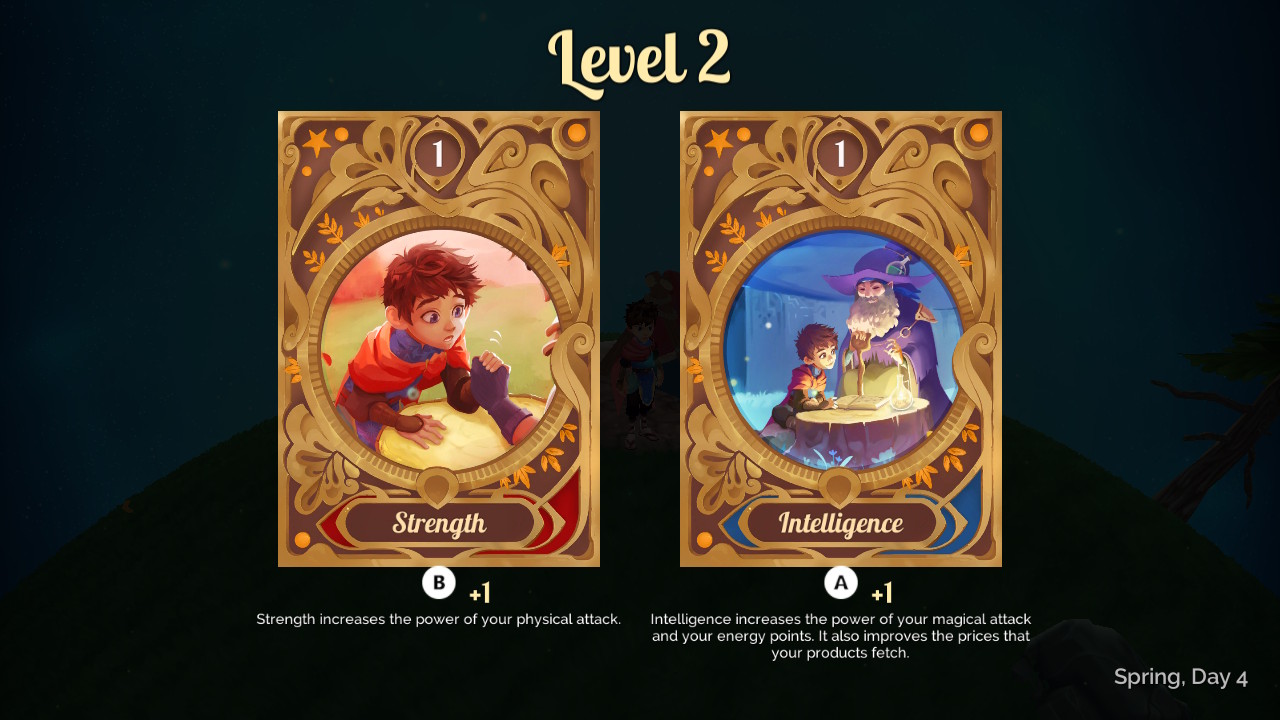
Levelling up has a nice card like page, showing you clearly the choices for your attributes.
Complete a series of quests from the cast of characters who visit your planet, each with their own unique design and distinct personality and priorities. Fans of the other Chibig Games titles may be able to spot a few unexpected cameo characters and enjoy the chance to explore the world of Ankora in a sparkling 3D overworld. Each quest line progresses the story and brings you closer to uncovering the mystery surrounding the sinister voice that haunts your dreams. The quest log itself has a rustic design, very in keeping with the rest of the game’s aesthetic, but the text appears very small in handheld mode, with no way to zoom in. The addition of a zoom feature or text size selection bar would really help to eliminate the need to squint at the smaller screen to figure out what you need to do, especially when some of the quests are very ambiguous and it can be difficult to figure out how to complete them. If you are stuck, there are some excellent walkthroughs out there which it might help to have handy, since the probability of stumbling across the answer accidentally is fairly low.
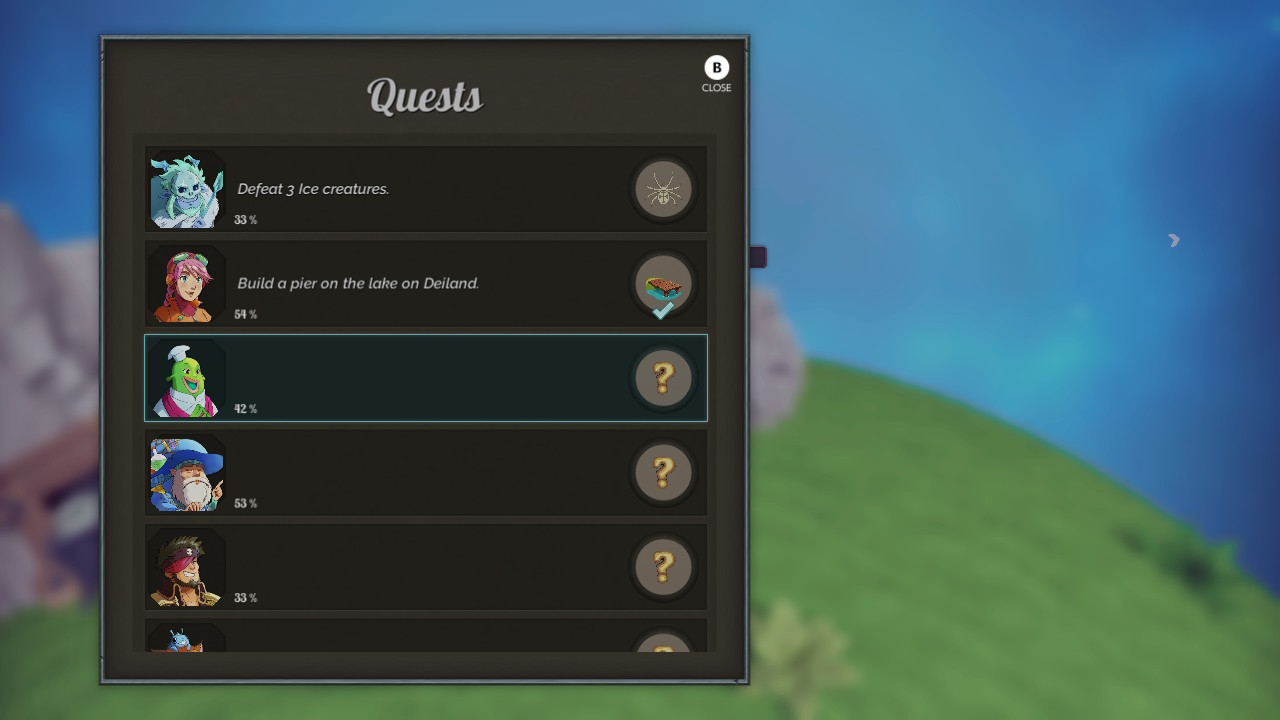
Text size can be a bit challenging, I just wish we had a zoom but there is a nice variation of quests available.
Combat in this game is interesting as you are never presented with a classic ‘offensive weapon’ like a sword or a bow. Instead, you must discover which of your tools will work best against each type of enemy. Later in the game, you are given access to a series of magic spells, which you must learn through the course of the story, and a staff to cast them that you must upgrade like the rest of your tools. The magic system itself is fairly basic and consists of selecting the spell that you want to cast, making sure that you are facing your enemy, and hoping that the spell hits. In order to cast spells, you require crystal shards that can be mined from your planet, but with a random drop chance, and a higher cost for more advanced spells, prepare for your magic resource to be limited.
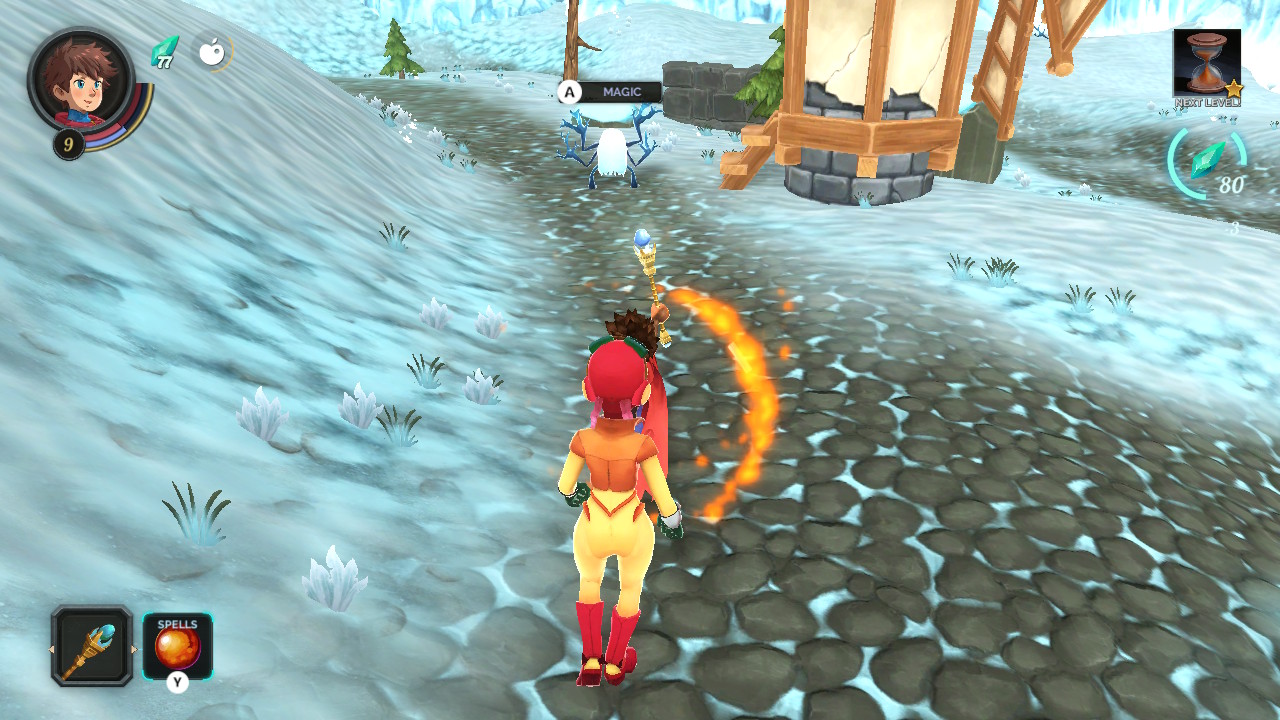
Random Tools or magic rather than swords and bows instantly give a new twist to combat.
By far the most unique mechanic in this game is the fishing, which functions more as a quick time event with you pressing the right button at the right time to win your prize. The more difficult the fish, the faster and more accurate you need to be to avoid coming up empty. This is a mechanic that is also used in Summer in Mara, but may cause accessibility issues for those with slower reflexes or worn out controllers.

The fishing has been updated to Summer in Mara which relies on quick responses put me off.
While you’re busy improving your planet, helping your friends, and battling monsters, don’t forget to take care of Arco now and again. He will need to eat and sleep in order to regain energy and health. You can monitor your stats using the interface in the top left-hand corner of the screen, which features Arco’s new character art, his character level, experience, health, stamina, food, and crystal resource in a clever, clean design that doesn’t restrict your field of view, even when using the smaller, handheld screen. Sleeping also functions as the level up system in the game. Every time Arco fills his blue experience meter, you will be prompted to sleep and select which skill you would like to level up. The game features 4 skills, each with their own stylised art featuring the character and activity most associated with that skill. Each time you level up, you are given the choice of 2 skills, and you can monitor your choices on Arco’s status page. The only downside is that once a choice is made, you have no way of changing your skill selections, so make sure you don’t misclick!
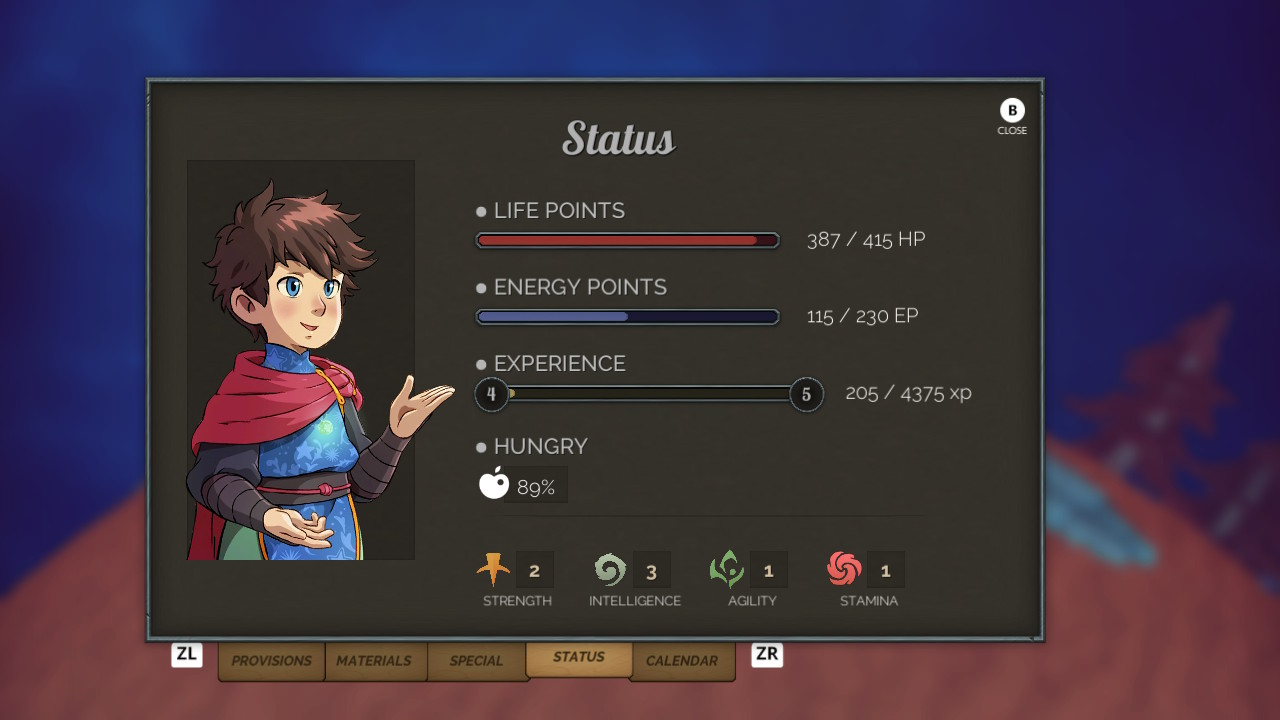
Once a choice is made, you cannot change your mind, and on the status screen you can check out the progress.
Disappointingly, one of the main issues in the PC version of the game has carried over into this new version; it is very easy to stumble into the endgame quest without realising and before you have completed all of your available quests. Any unfinished quests can be completed once you return to your planet, along with some additional post-game content, but once you have finished the main story, going back may seem a bit pointless.
Another major criticism of the endgame sequence is that it feels unfinished, as though the writers intended it to be the first part of a larger story. With Chibig now working on other games in the series, an update with more content seems unlikely and we are left with a disappointing end to an otherwise fun and engaging game.
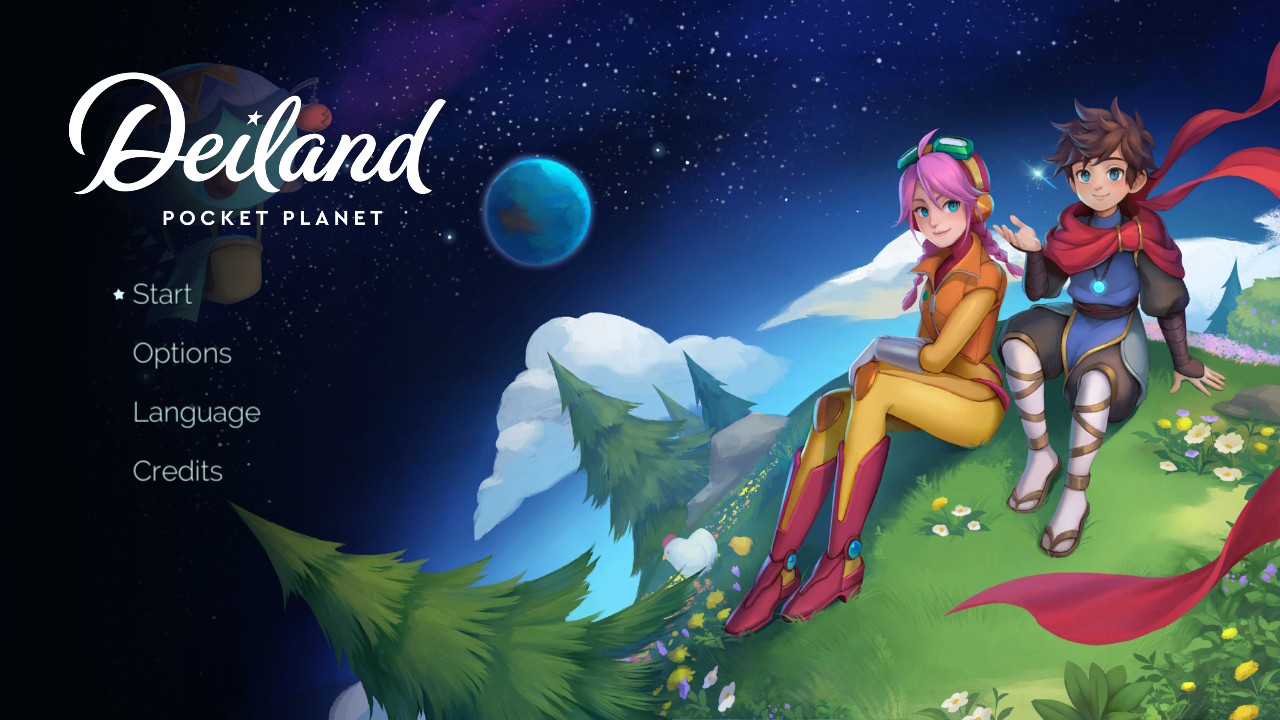
Deiland: Pocket Planet is overall a good game for the Switch.
Overall, Deiland is a relaxing, enticing adventure with unique characters, and this update has vastly improved the visual and audio experience of the game, bringing it more in line with the style of other Chibig games in the series. The quest-based gameplay and autosave features perfectly suit the flexible style of the Nintendo Switch as you can jump in and out of the game at any time. However, there is no difficulty setting in the game and the story is entirely scripted, meaning that your experience will be very similar every time you play. There is also no new game option in the start menu, meaning that if you want to replay the game, you will have to delete your save file, which may put some more casual players off.
Despite the issues with the end game quest and unfinished story, Deiland: Pocket Planet has more than enough content to justify its retail cost, and serves as a delightful introduction to a very thought-provoking series of games whose stories explore the relationship we have with the world around us and the impact we have, both good and bad. In a landscape swamped with expansive open worlds and epic adventures, this game encourages a focus on helping those around you no matter who they are, and proves that even if your world is small, you can still have a big adventure!


